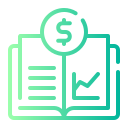Why Budgeting Feels Hard (and How to Make It Easy)
Track every expense for a week, even the tiny ones. Patterns jump out, like daily snacks or rideshares. Awareness turns vague stress into specific choices. Share your biggest surprise in the comments and inspire another beginner to take that same first step.
Why Budgeting Feels Hard (and How to Make It Easy)
Pick one clear, small goal: save fifty dollars, pay down a single bill, or avoid takeout twice. Quick wins create momentum. Post your goal below so we can cheer you on, and subscribe to get reminders that keep your progress alive.
Why Budgeting Feels Hard (and How to Make It Easy)
During my first budgeting month, I felt defeated by transit costs—until a monthly pass cut the total by a third. One simple switch changed everything. What tiny change could reroute your week? Drop your idea; we’ll build a beginner-friendly list together.






